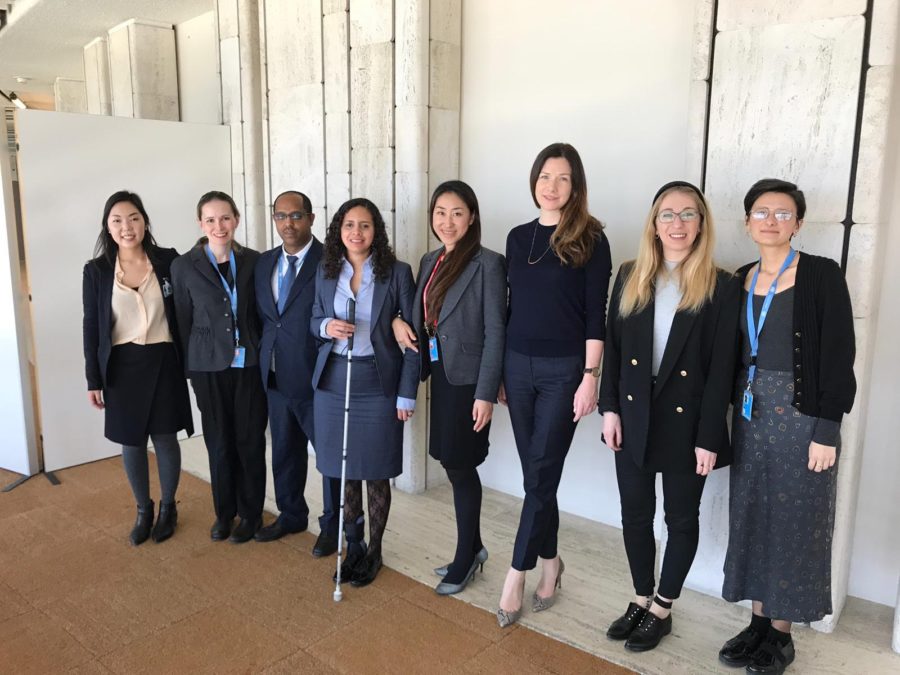19th March 2019 Geneva, Switzerland
The Rule of Law in the Human Rights Council

The implementation of the rule of law, like human rights and fundamental freedoms, is a key means by which the power of the state is constrained.
While human rights address the relationship between the state and its people, the rule of law governs the relationship between the branches of the state. Its implementation ensures that none of those branches – executive, legislature or judiciary – is above the law, and that each must respect and ensure respect for human rights and fundamental freedoms.
In the Human Rights Council, the UK is part of a core group which puts the rule of law on the Council’s agenda, every session. We run a joint statement which highlights a particular angle of the rule of law, and galvanise as much support for the issue from other states as we can.
Yesterday the Permanent Representative of the UK Mission to the United Nations, Julian Braithwaite, delivered this session’s statement. Our theme was access to justice for children and young people. The statement highlighted the reasons that the implementation of the rule of law is particularly important for the protection and empowerment of those who represent our future.
Young people are disproportionately affected by human rights violations, which not only affect their health, education and development, but also put them at an increased risk of being trafficked, exploited and abused. The effects are further intensified for children and young people with specific characteristics, such as disability or gender identity, that increase their risk of becoming exposed to discrimination and marginalisation.
States have a responsibility to ensure that their institutions of governance, including criminal and civil legal systems, enable children and young people to understand their rights, to participate in proceedings and to access justice.
These themes were highlighted in a panel event I organised at the Palais des Nations last month, together with the other members of the core group – Yibza from the Ethiopian Mission, Daniela from the Italian Mission, Mina from the Japanese Mission, Amine from the Moroccan Mission and Lucia from the Mexican Mission – and Julian Fleet, Permanent Observer in Geneva for the International Law Development Organisation, with whom the group frequently collaborates.
We were thrilled that Diahann Gordon Harrison, Children’s Advocate of Jamaica and National Rapporteur on Trafficking in Persons, and Hon. Dunstan Mlambo, Judge President of the Gauteng Division of the High Court of South Africa, came to Geneva to speak at our event, along with Mikiko Otani, a member of the Committee on the Rights of the Child, and Aijan Muktar, Swiss Youth Delegate to the United Nations. Their thought-provoking reflections informed our drafting of the statement delivered by Ambassador Braithwaite yesterday.
I am particularly proud of this statement because it received signatures of support from a record number of states: 80 so far, from all regions of the world.